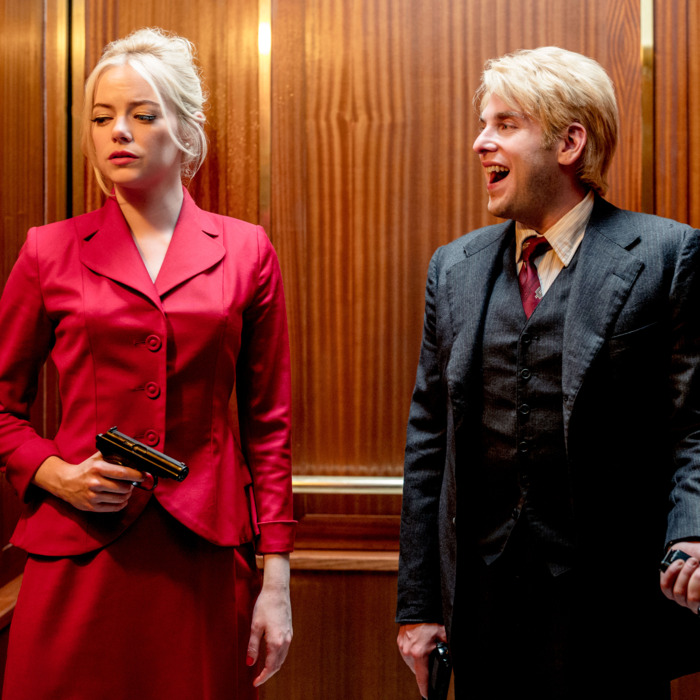What if there was a pill that could cure all of your problems?
Netflix’s newest miniseries “Maniac” takes this concept and runs with it, leading viewers on a stunning mind trip featuring kidnapped lemurs, ghostly séances, a “Lord of the Rings”-style quest, Icelandic spies and Jonah Hill as a Mafioso gangster complete with gold chains and braided hair.
While “Maniac” sounds like a lot to process (and it definitely is – you may need to rewatch it a few times so you can catch everything you missed), beneath its visual and narrative splendor is a story that is deeply human.

Photo courtesy: Vulture
Leads Emma Stone and Jonah Hill are two individuals with deeply troubling mental and emotional problems: Annie (Stone) is unable to cope with the death of her younger sister, while Owen (Hill) suffers from schizophrenia and the pressure of his wealthy family to commit perjury.
Both characters enroll in a pharmaceutical trial for a revolutionary set of drugs that helps individuals overcome personal issues by subjecting them to various dreams where they experience alternate lives. When Annie and Owen’s minds become merged together in these dreams, they help each other overcome their respective issues.
“Maniac” is a masterpiece on a multitude of levels: from creator Patrick Somerville’s bizarre story and uniquely creative concepts, to director Cary Joji Fukunaga’s masterful directing, to Stone and Hill’s exceptional performances that are simultaneously understated and genuinely emotional.
One of the show’s two strongest aspects is the sheer amount of interesting ideas it brings to the table. It almost feels as if the 10-episode limit led creators to pack “Maniac” full of as many ideas and issues as possible: mental illness, walking advertisements, emotional computers, trauma, people paid to be your friends, sexual assault in the workplace, the effects of capitalism, koala robots that play chess, alternate realities and the human experience of loneliness – just to name a few.
While this might make the series feel too scatterbrained, the creators handle it with enough heft that it still makes enough sense, and you don’t feel too overloaded by the end.
While the show takes place in a version of the present day, the project has a wonderful 1980s aesthetic for fans of other Netflix hits “Stranger Things” and “GLOW.” Stunning use of neon lighting, retro computers and a synthesized orchestral score make the world feel both familiar and foreign at the same time.
Due to the show’s recurring drug-trial dream sequences, Fukunaga is essentially handling a different TV genre each episode. The show is constantly bombarding you with a stream of wonder.
The drama’s other strongest aspect is by far its two leads, Emma Stone and Jonah Hill. It’s been 11 years since they worked together in “Superbad,” and watching the show will make you think about how far they have come. They’re no longer goofy teens in a Judd Apatow comedy; they’ve been nominated for Oscars, worked with some of the biggest names in Hollywood and now they’re back together again for one quick burst of TV excellence. Their characters are depressed, confused and end up finding the one thing they’ve needed: someone that cares about them.
In “Maniac,” a lot of ideas are thrown at you, the plot both briskly jumps from one beat to the next while also taking its time, and the ending comes sooner than you think, potentially leaving you with a feeling of wanting more.
But unlike a regular TV series, the ending is definitely an actual ending. The story feels complete, with just enough open-endedness for the characters, but a satisfying conclusion for the audience. But if “Maniac” leaves you confused or emotional by the end, that’s okay too, because, in a sense, that feels like the whole point.






